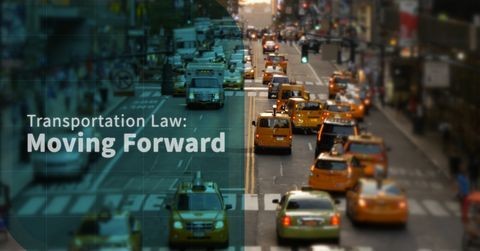Kendyl Barnholtz
Overview
Kendyl Barnholtz is an associate in Crowell’s Litigation and Antitrust groups, where she supports all stages of litigation and represents clients across a variety of industries.
Career & Education
- LMU Loyola Law School, J.D., 2024
Chief Note and Comment Editor, Loyola of Los Angeles Law Review, 2023–2024 - University of California, Los Angeles, B.A., 2019
- LMU Loyola Law School, J.D., 2024
- California
Kendyl's Insights
Blog Post | 10.13.25
Blog Post | 09.12.25
Blog Post | 07.25.25
Supreme Court Asked to Resolve Circuit Split on Freight Broker Liability
Blog Post | 07.21.25
Trump v. Casa: Universal Injunctions and the Class Action Loophole
Insights
The Notorious C.E.C.—An Analysis of California Evidence Code Section 352.2
|01.27.25
Loyola of Los Angeles Law Review
Supreme Court Puts the Brakes on Preemption Uncertainty
|10.13.25
Crowell & Moring’s Transportation Law: Moving Forward
FTC Updates (August 4 –August 22, 2025)
|09.12.25
Crowell & Moring’s Retail & Consumer Products Law Observer
Supreme Court Asked to Resolve Circuit Split on Freight Broker Liability
|07.25.25
Crowell & Moring’s Transportation Law: Moving Forward
Trump v. Casa: Universal Injunctions and the Class Action Loophole
|07.21.25
Crowell & Moring’s Transportation Law: Moving Forward
FTC Updates (May 26 – June 16, 2025)
|06.26.25
Crowell & Moring’s Retail & Consumer Products Law Observer
Senate Committee Holds Confirmation Hearing for FRA Administrator Nominee David Fink
|05.20.25
Crowell & Moring’s Transportation Law: Moving Forward
Rail Derailment Trial Update: Jury Finds GATX Not Liable
|05.07.25
Crowell & Moring’s Transportation Law: Moving Forward
Rail Derailment Trial Update: GATX and OxyVinyls Say “Case Closed”
|04.22.25
Crowell & Moring’s Transportation Law: Moving Forward
Rail Derailment Trial Kicks Off: Who Pays For East Palestine?
|04.17.25
Crowell & Moring’s Transportation Law: Moving Forward
Kendyl's Insights
Blog Post | 10.13.25
Blog Post | 09.12.25
Blog Post | 07.25.25
Supreme Court Asked to Resolve Circuit Split on Freight Broker Liability
Blog Post | 07.21.25
Trump v. Casa: Universal Injunctions and the Class Action Loophole




